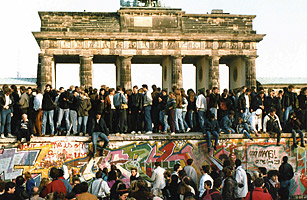
Harvard academic Francis Fukuyama's 1989 article in National Interest spawned his most famous work, published three years later. As Soviet communism collapsed and movements for freedom and democracy in Eastern Europe captured the world's imagination, Fukuyama suggested that the time was not far off when every nation-state would become a liberal democracy. Invoking the 19th century philosopher Hegel, who thought of history as a kind of evolutionary process, Fukuyama imagined a natural "teleological" end whereby the pinnacle of human development would be in societies based on democracy and capitalism. In an era of optimism, The End of History and the Last Man won Fukuyama near instant celebrity and influenced a whole swath of prominent commentators and advocates of globalization, like "earth is flat" proponent Thomas Friedman. But history, as Fukuyama surely accepts, has not ended. The world looks no closer to being one large European Union — and with the success of decidedly undemocratic China and the rise of reactionary, extremist right-wing movements throughout the West, some argue that it's Fukuyama's liberal democracy whose future lies in shadow.